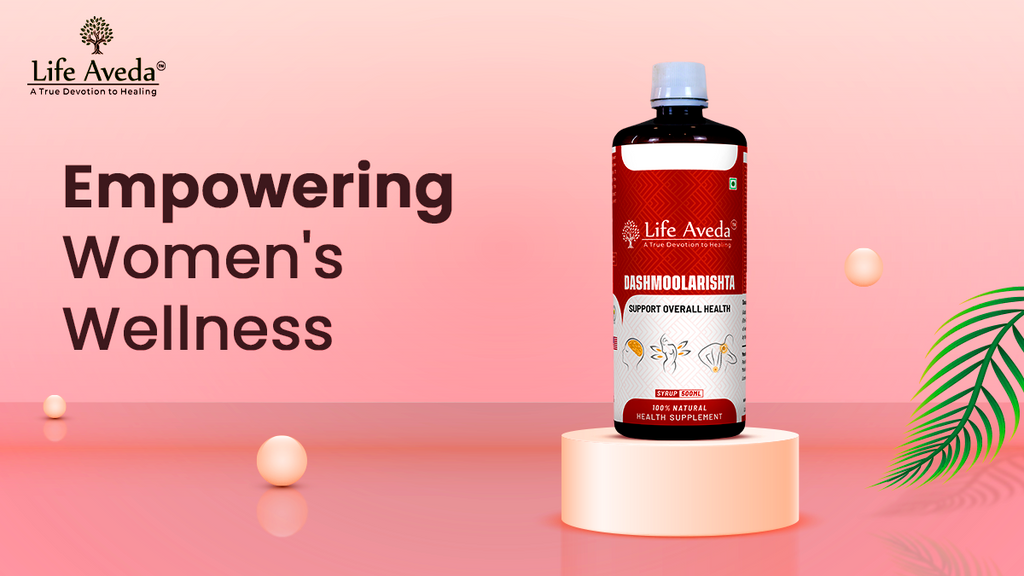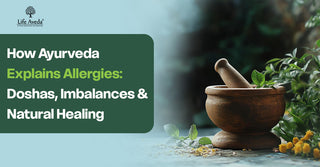Ayurveda is a very deep science and has a lot of secrets hidden in its womb. The dashmool is the group of herbs whose roots are used as ingredients for preparation of Dashmoolarishta. This herbal decoction is known for its Vata pacification and shootha har properties. It helps in reducing the pain and swelling especially in case of osteoarthritis. The preparations like arishta and asava in Ayurveda are prepared by fermenting herbs with jaggery and water. The fermentation process is believed to enhance the properties of the formulation and thus helps in a variety of conditions. It is often recommended dashmoolarishta for irregular periods, women's health issues, pelvic pain and disorders of the reproductive system.
Key Takeaways
- Dashmoolarishta is an Ayurvedic formulation prepared with dash moola that has 10 roots of 10 different plants along with other herbs.
- It's a classical preparation mentioned in different text books of Ayurveda.
- It works like a tonic and is prepared using a fermentation method.
- Dashmoolarishta has some amounts of self generated alcohol and is to be taken 10-20 ml two times in a day.
- The formulation is widely used in conditions related nervous system, musculoskeletal system, women health and wellness & in different kind of arthritis
- This preparation has anti inflammatory, analgesic and rejuvenating properties.
- Dashmoolarishta helps to pacify Vata dosha and thus is of great benefit in 80 types of Vata vayadhi.
What is Dashmoolarishta?
Dashmoolarishta is a herbal Ayurveda liquid formulation which is prepared by the process of fermentation. The key ingredients of the formulation are dash moola. Dashmool is the group of 10 herbs whose herbs are used for preparation of this concoction which are known for their Vata pacification property. It has multiple benefits and can be used by both males and females.
What are the Benefits of Dashmoolarishta?

Ayurveda texts suggest the use of Dashmoolarishta in many conditions. Following are the indications as per the verses by Charak regarding Dashmoolarishta:
- It is termed as Balya, which means it helps in improving the strength of the body. Especially muscular strength. The formulation is called Ama Nashak. It helps in expelling the endotoxins from the body. In addition, it is termed as shwas hara & Anulomana. This explains its effects on asthmatic cases.
- Deepana, pachana and rochana properties of Dashmoolarishta explains its working on the digestive system. Deepan stands for stimulating digestive fire, pachana is supporting digestion and rochana is stimulating appetite.
- It's called Rasayani which means it helps in rejuvenation of the whole body. Hikkanigrahan is one another benefit of Dashmoolarishta. Hikkanigrahan means controlling excessive hiccups.
- Dashmoolarishta helps in bringing down Jwara. Jwara is Fever.
What are the Uses of Dashmoolarishta?
As mentioned before, it is a formulation prepared with the process of fermentation and has some percentage of self generated or naturally generated alcohol in it. The uses of Dashmoolarishta are as follows:
- The formulation works magically in reducing the shotha. Shotha is a sanskrit terminology for swelling or inflammation.
- It has Vata balancing properties. Vata is the kinetic energy in the body and its imbalance can cause many conditions related to nervous system, musculoskeletal system, blood vessels etc. But Dashmoolarishta helps in pacification of aggravated vata dosha and also keeps it under balance especially in old age, when its aggravation is natural due to depletion of bodily tissues.
- It also helps in stabilizing the hormones in females and helps in different gynecological conditions.
- The formulation is best in postpartum stages. As it also involves aggravation of Vata. Childbirth is followed by blood loss and sudden vacuum inside the body. This gives a very good chance for Vata to aggravate but with Dashmoolarishta this situation can be avoided very easily.
- Muscle stiffness is also due to Vata. Excessive exercising or lifting weights above your body’s capacity can aggravate Vata and thus makes you prone to injury.
- Dashmoolarishta works very well in managing pain as well.
- Also, it can be given in different types of arthritis due to its Vata pacification, pain relieving, shotha har and ama expelling properties. Ama here refers to the endotoxins.
What are the Precautions of Dashmoolarishta?
Before starting intake of Dashmoolarishta, following are the precautions which are to be kept in mind:
- Pregnant women should not have Dashmoolarishta.
- Children are not to be given Dashmoolarishta before consulting an experienced Ayurveda Doctor.
- Even in the postpartum stage, kindly consult an experienced Ayurveda Doctor before its intake.
Summary
Dashmoolarishta is a classical herbal preparation mentioned in Ayurveda classical texts. It is prepared with the process of fermentation and has self generated or naturally generated alcohol which is totally harmless. In addition, this single formulation is capable of helping in a variety of conditions and is best for women who are in their postpartum stage. The formulation is having very good results in Vata Vayadhis due to its Vata pacification property. But apart from all its benefits, it's best to start its intake after consultation with an experienced Ayurveda Doctor.



